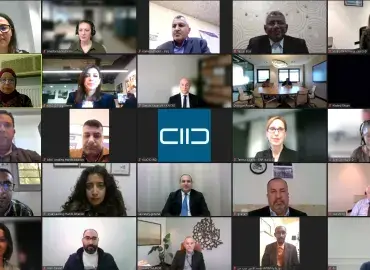Scout Group Engages Hundreds of Tunisian Youth in Anti-Hate Speech Initiative
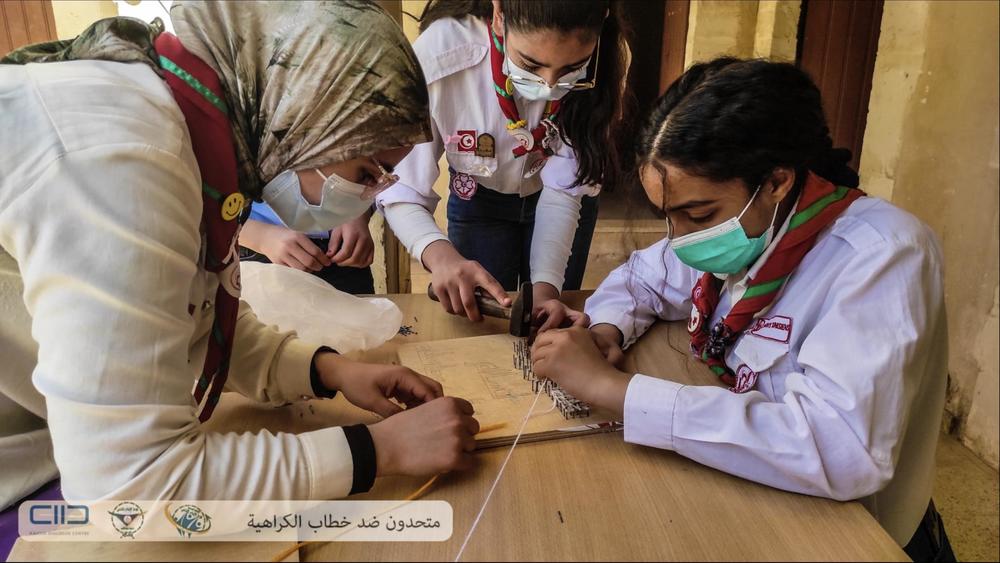
A Tunisian Scout group is enabling young people to actively counter hate speech in a society where social inequalities and major political changes have fuelled tensions and conflict over the past ten years.
“United Against Hate Speech” is an inclusive project targeting a wide range of young people. It was launched by the local Imam Lakhmi Scout group, a member of the Tunisian Scouts Organisation, which is part of the World Organisation of the Scout Movement, one of KAICIID’s partners.
The initiative was supported by KAICIID through its Dialogue-60 Project, which promotes interreligious and intercultural dialogue and cooperation in the Arab region.
“This project is very relevant to the Tunisian context as it concretises the scouting teachings of active citizenship,” says Dialogue-60 project consultant Amel Jabrane. “In a post-revolutionary context where Tunisian youth are threatened by extremist views and a loud hate speech discourse, similar projects which promote common citizenship education represent a sound mechanism to counter violent manifestations.”
“United Against Hate Speech” has so far involved 210 participants, including adults up to 35 years of age and children as young as five, both Scouts and non-Scouts, in the area of Sfax, on the country’s eastern coast, south of Tunis. In addition 1,220 more people were able to join the project’s activities online.
“Our aim was developing young people’s ability to address the issue of religious based violence and extremism through the knowledge of this phenomenon, based on its study and analysis, as well as discussion and dialogue,” says Anis Drira, a Scout leader and coordinator of the project.
“We decided to move away from more traditional and typical activities by designing a range of initiatives aimed at shaping young people to be ambassadors of peace in their local communities and to engage them positively at various stages of work: we want them to be active in message-making rather than passive recipients.”
The project responded to an urgent need to protect young people from hateful and divisive messaging by extremists and various political factions.
Defusing a time bomb
“Since late 2010, Tunisia has undergone a series of major political and social transformations which, while strengthening the human rights system, in particular Tunisian citizens’ right to self-determination and freedom of expression, have also contributed to the emergence of a dangerous extremist rhetoric, calling for hatred and intolerance,” Drira explains.
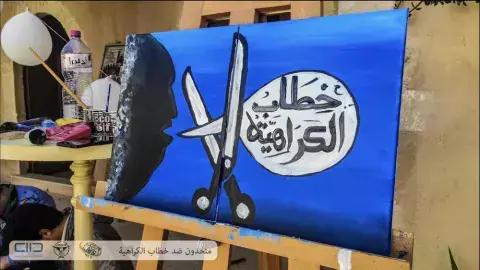
Easy access to social media has made young people especially susceptible to hate speech rhetoric and narratives, he adds.
“Some leaders and factions have exploited them to fuel hatred and social division,” Drira explains. “This was possible because of a lack of awareness programmes and action in general, on behalf of education and training institutions. Young people have become a time bomb, which can be controlled and used to wage a war on peace and social stability.”
For this reason, “Youth Against Hate Speech” also targeted educators and trainers, as well as children.
Messaging targeted those working with youth, directly and indirectly, such as teachers, professors and youth planners. There was a significant focus on children between the ages of 5 and 15, stemming from a belief that the values of common citizenship should be taught early on.
Arts and crafts as pathways to peace
The project, encompassing both the theory and practice behind anti-hate speech initiatives, was divided in three parts:
Participants started by organising a consultation based on the idea that hate speech cannot be confined to specific religions or affiliations. This was followed by a training session on the use of modern technology and platforms to craft content which can be used to counter hate speech. Project participants rounded off the initiative at the end of March by staging a series of open arts workshops.
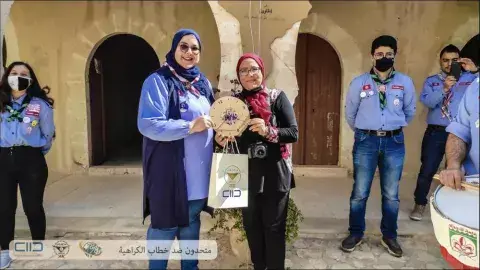
This “interactive open day” was designed to provide the project’s youngest participants with a space to creatively express their opinions on hate speech using painting, calligraphy, handcrafts, music and poetry.
19-year old student Mariem Kchaou took part in two of the workshops.
“Within our communities, young people are often victims of hate speech and they really don't have the right to speak and express their thoughts and feelings,” she said.
“In these workshops I have learned a lot of new things that I may need in the future,” added Kchaou, a Scout leader.
“For example, one thing we, young people, can do to counter hate speech is using social media to spread positive values and love between members of the society.”
Social media a double-edged sword
Alongside the in-person activities, the project also included a social media campaign on Facebook and YouTube involving 14 civil society activists and supported by nine journalists from relevant media outlets as well as members of the Tunisian and Arab Scout movements.
Three local radio stations promoted the project by covering its activities, while a number of Tunisian organisations for the protection of children and the youth participated in the social media campaign.
“Launching an online campaign to fight violence and extremism was among our main objectives,” Drira explains.
"While social media platforms and tools can contribute to the dissemination of hate speech, they can also serve as incubators for campaigns against all forms of violence and extremism, especially as they are very popular with different age groups, young people in particular, and they are fast and easy to use.”
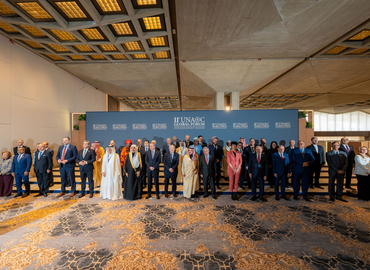
Hosted by the Kingdom of Saudi Arabia in Riyadh from…

